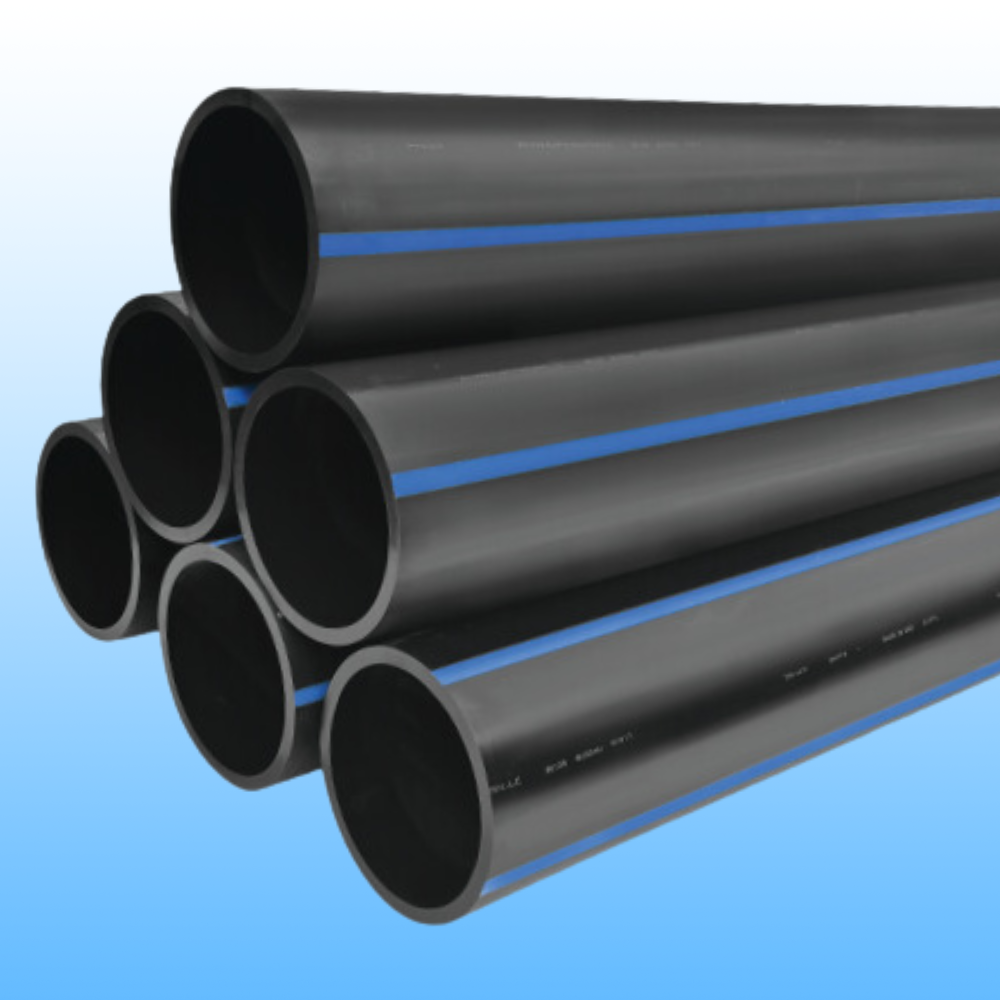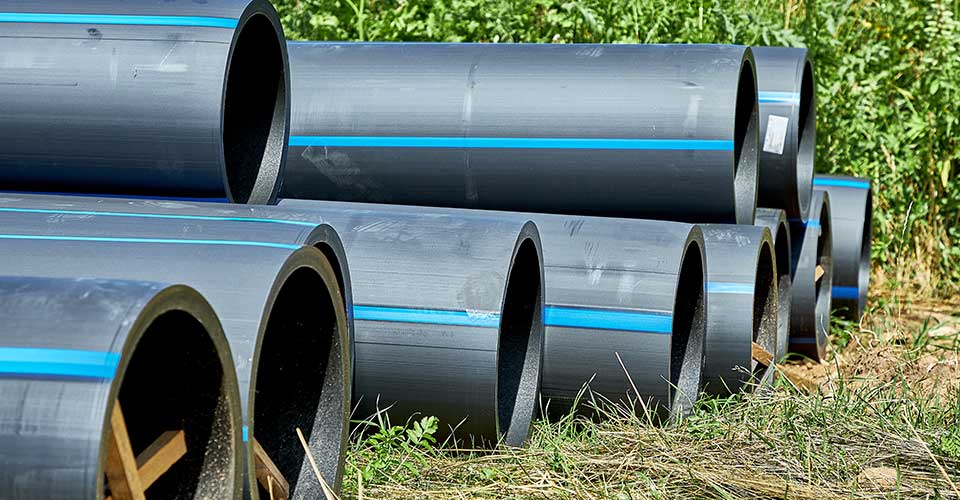Pipe Manufacturing Midland TX: Process Explained
A Comprehensive Overview to the Numerous Uses HDPE Pipeline in Building And Construction and Market
HDPE pipes have actually emerged as a critical element in contemporary building and commercial applications. Their unique homes, such as resistance to rust and lightweight design, make them suitable for a large range of uses. From water system systems to farming watering, HDPE pipes supply options that improve performance and sustainability. Recognizing their varied applications is necessary for specialists aiming to enhance framework. What specific advantages do these pipes bring to each sector?
Water Supply and Circulation Solutions
Water system and circulation systems are vital elements of metropolitan infrastructure, commonly depending on high-density polyethylene (HDPE) pipelines for their sturdiness and efficiency. These systems transportation potable water from therapy centers to customers, guaranteeing availability and safety. HDPE pipelines are favored for their resistance to deterioration, chemicals, and severe temperatures, which improves their long life and minimizes maintenance expenses. Furthermore, their lightweight nature permits for less complicated setup and transportation, making them ideal for numerous city and rural applications.
The versatility of HDPE pipes allows them to be set up in tight rooms and around obstacles, minimizing the requirement for substantial excavation (Pipe Supplier American Plastics Midland). Their smooth interior surface area minimizes rubbing losses, boosting water circulation prices. As cities remain to grow, the demand for reputable water supply systems increases, positioning HDPE pipelines as a sustainable service for modern-day framework projects. Their tested track document makes them a favored choice among engineers and city organizers alike
Wastewater Management and Treatment
Reliable wastewater administration and treatment are important for keeping public health and ecological top quality. HDPE pipelines play a crucial function in this process as a result of their durability, resistance to corrosion, and capacity to endure extreme chemicals. These pipelines are generally utilized in different applications, including sewage systems, stormwater water drainage, and wastewater treatment facilities. Their light-weight nature facilitates less complicated installation and transport, reducing labor costs and time.
Additionally, HDPE pipes have a smooth interior surface area that reduces friction loss, promoting efficient flow rates. They are also less prone to leakages and failings contrasted to standard materials, guaranteeing that impurities are contained properly. Furthermore, their flexibility enables flexibility in numerous soil problems, making them suitable for varied ecological settings. As sectors progressively focus on lasting practices, using HDPE pipelines in wastewater monitoring systems lines up with goals for reducing ecological impact and enhancing source recuperation.
Agricultural Irrigation Solutions
In farming settings, reliable irrigation services are important for enhancing plant yields and taking care of water sources. HDPE (High-Density Polyethylene) pipelines play an important function in modern-day irrigation systems due to their durability, adaptability, and resistance to deterioration. Their capability to withstand high stress makes them optimal for both surface area and subsurface watering applications, guaranteeing consistent water circulation throughout fields.
Farmers can make use of HDPE pipelines in drip irrigation systems, which supply water directly to plant roots, decreasing wastage and promoting healthy and balanced growth. Furthermore, these pipelines are lightweight and very easy to install, reducing labor expenses and setup time. Their long lifespan and low upkeep requirements get more info further improve their allure in agricultural methods.
HDPE pipelines are eco friendly, as they can be recycled and do not leach damaging chemicals into the dirt. This makes them a sustainable selection for farmers intending to adopt environment-friendly agricultural techniques while maximizing performance.
Industrial Applications and Procedures
Versatility is a trademark of HDPE pipelines, making them vital in various commercial applications and procedures. These pipelines are widely made use of in chemical handling markets as a result of their superb resistance to a large range of harsh materials. HDPE's light-weight nature, integrated with high tensile strength, permits for simple installment and long-term efficiency in demanding environments.
In the oil and gas sector, HDPE pipelines play a vital role in moving hydrocarbons and gases, thanks to their longevity and versatility - American Plastics HDPE Pipe Manufacturing. Furthermore, they are utilized in mining operations for the transportation of slurry and other products, where conventional piping systems may fall short
Furthermore, HDPE pipes are increasingly utilized in making centers for supply of water lines and wastewater management. Their capability to withstand extreme temperatures and stress makes them suitable for a variety of industrial processes. Overall, HDPE pipes contribute considerably to effectiveness and safety throughout diverse commercial applications.
Stormwater Administration and Drainage Solutions
Stormwater management and drainage systems are critical components in metropolitan infrastructure, made to handle excess rains and lower flooding dangers. High-density polyethylene (HDPE) pipelines are significantly made use of in these systems as a result of their longevity, flexibility, and resistance to rust. These pipelines successfully deliver stormwater away from populated locations, minimizing surface area overflow and avoiding waterlogging.
HDPE's lightweight nature facilitates simpler installment, minimizing labor prices and building time. Additionally, its resistance to chemicals and environmental stress factors warranties longevity and dependability in various climates. Along with conventional drainage applications, HDPE pipelines are likewise used in innovative services such as eco-friendly infrastructure, which consists of rainfall gardens and permeable pavements.

Regularly Asked Concerns
Exactly How Does HDPE Pipe Compare to PVC Pipeline in Expense?
Generally, HDPE pipe often tends to be extra pricey than PVC pipe as a result of its boosted resilience and adaptability. Lasting cost factors to consider, such as upkeep and lifespan, might prefer HDPE in certain applications.
What Is the Life Expectancy of HDPE Water Lines Under Diverse Problems?
HDPE pipelines generally have a life-span of 50 to 100 years, relying on ecological conditions, installment techniques, and usage. Elements such as temperature level, soil type, and exposure to chemicals can considerably influence their durability.
Can HDPE Pipes Be Recycled After Usage?
Yes, HDPE pipes can be recycled after use. The recycling procedure involves thawing down the product, allowing it to be repurposed right into new products, thus advertising sustainability and minimizing environmental impact related to plastic waste.
Exist Any Type Of Specific Installation Obstacles With HDPE Pipelines?
Setup obstacles with HDPE pipelines include correct jointing techniques, making sure appropriate trench problems, and taking care of thermal development. Furthermore, knowledgeable labor is called for to manage customized tools, which can complicate the setup process in different settings.

What Qualifications Should I Seek When Buying HDPE Water Lines?
When acquiring HDPE pipes, one need to search for qualifications such as ASTM, AASHTO, and ISO, which confirm high quality and conformity with industry criteria, assuring longevity and performance in numerous applications. - Pipe Supplier American Plastics Midland